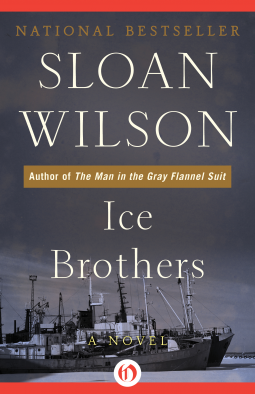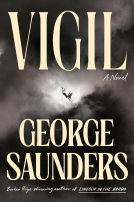
Ice Brothers
A Novel
by Sloan Wilson
This title was previously available on NetGalley and is now archived.
Send NetGalley books directly to your Kindle or Kindle app
1
To read on a Kindle or Kindle app, please add kindle@netgalley.com as an approved email address to receive files in your Amazon account. Click here for step-by-step instructions.
2
Also find your Kindle email address within your Amazon account, and enter it here.
Pub Date Dec 23 2014 | Archive Date Feb 23 2015
Open Road Integrated Media | Open Road Media
Description
After the attack on Pearl Harbor, Paul Schuman, a college senior and summer sailor, enlists in the Coast Guard. His beautiful, mercurial wife, Sylvia, wants him to stay at home in Massachusetts, but Paul is ready for adventure and eager to serve his country. His active duty begins when, without a day of training, he is assigned to be the executive officer aboard the Arluk, a converted fishing trawler patrolling the coast of Greenland for secret German weather bases.
At the helm of the Arluk is Lieutenant Commander “Mad” Mowry, the finest ice pilot and meanest drunk in the Coast Guard. Paul has a lot to learn from his captain, but not as much as communications officer Nathan Greenberg does. A Brooklyn engineer, Nathan doesn’t know the difference between a ship’s bow and its stern.
No matter how nasty Mowry might be, Schuman and Greenberg have to pay close attention, because deadly icebergs, dangerous blizzards, and menacing Nazi gunboats lurk along the frigid Arctic coastline. Surviving the war, Schuman soon realizes, will require every ounce of courage and intelligence he possesses—and that’s before Mowry breaks down and the young officer is forced to take command of the Arluk and its crew at the worst possible moment.
A masterful blend of high drama and convincing realism, Ice Brothers is a true classic of World War II and one of Sloan Wilson’s finest novels.
Open Road Media would like to thank you for your interest in this title, and we encourage you to share your thoughts with the book community. We hope you will take your time to post your review on Goodreads or retailer's sites, such as Amazon and Barnes & Noble.
A Note From the Publisher
Available Editions
| EDITION | Ebook |
| ISBN | 9781497689633 |
| PRICE | $14.99 (USD) |
Average rating from 8 members
Featured Reviews
Sloan Wilson was a veteran of the second world war, and he served in the Greenland Patrol. Here he uses his knowledge of the place to create an entirely unique setting. In fact, Greenland itself is very nearly a character in Ice Brothers. This book deserves 3.5 stars , and as usual I have rounded it upward, as I generally do when I am unable to denote a half-star. Thank you to Net Galley and Open Road Media for the ARC.
At the start, I was torn. Although I enjoy both historical fiction and military history a great deal, I deliberately avoid World War II stories that take place in the Pacific theater. My reason is that I don't like to see Japanese people referred to with racist slurs, even though I know that at the time it was commonplace among many Caucasian members of Allied nations. The"J" word is every bit as offensive to me as the "N" word is. I understand that there was a time when Euro-Americans freely bandied both terms about. However, most editors have the sense to remove it and substitute a less heinous term these days, unless the use of the term serves an important purpose in the story. (For example, check the use of anti-Semitic language by the villainous skipper, Lowery, against whom we develop the bright and personal Nathan Green, who hears his name misused one time too many and vows to change it back to "Greenburg" once he is back in the US.)
So I wanted to read this book, about which little description was available, for two reasons: one was the setting, which will serve as the hook for a lot of readers. What did I know about Greenland? I didn't even know it was Danish territory! A trip down my upstairs hallway to the large world map hanging on the wall there confirmed the story's assertion: sure enough, right there underneath the word "Greenland", writ large albeit in parenthesis, it says "Denmark". How typically North American of me to have assumed it was Canadian! I surely needed to learn more, and good historical fiction is the most enjoyable way to learn many things.
The second reason for my interest was that it was described as a story in which the protagonist hunts for a Nazi ship. GOOD. So, Japan is unlikely to surface, and I can comfortably read without the story exploding in my face.
So when I hit the "J" word, which was not at all important to the story, but thrown in perhaps as set dressing or to set the tone of the story, I was shocked. The further extraneous reference by a character in the story who asserted that "...those little yellow bastards can't fight" made it worse. (Of course, there was no reference to the internment of Americans of Japanese descent; extraneous material here is limited to that which is ugly and prejudicial.) I told myself I would take a break and read it a little bit later.
Every time I remembered my obligation to Open Road and Net Galley, I picked up my e-reader, but I had other galleys and other obligations, and each time I thought I would give Sloan's work another try, I found myself reading a different ARC instead. This persisted for over a month; I can usually finish and review a book faster than that, unless asked to hold my review for publication.
Finally, I had to make a choice. I went back and reread the introduction. I steeled myself and forged onward. It's a good thing that the plot, setting, and character development were so well done, because that word was used about ten times, and it never contributed a single thing to the story itself.
All right; let's look at the story, then.
I know very little about watercraft, and was delighted with the accessible, instructive manner Sloan used to clarify the various types of ships and boats and the nautical terms that are most commonly used. I was also surprised and bemused by the stratification of resources apportioned to the Coast Guard as opposed to the Navy, with the Coast Guard serving as the poor cousin that receives whatever the Navy doesn't need. The ingenious ways in which our fictional Coast Guard officers and crew work around the lack of resources, often not at all legally, must have had at least some basis in fact. I found it really interesting, and it drew me closer to the story as I sympathized with the men on the trawler (The Arluk).
Sloan's approachable way of describing Greenland's weather and geography were also really useful.
Greenland is a dangerous place to sail. Today it is different than it was during that time period. I did a web crawl and was horrified to see how much of it has melted now. Back then, at least, it was possible for a sturdy ship to weave its way into a fjord (which is like a peninsula made of water that pokes into the ice mountains), and then have everything freeze, and the ice might crush the ship and its crew against the mountains. The ever-present tension of a possible encounter with Nazis created a sense of suspense that made the book hard to put down after a certain point was reached, even with the racist terminology, which continued to grate and became worse when Paul and Nathan discussed the loyalties of the "Eskies" or "Eskimos" with the Danish inhabitants. The Inuit people were treated as cartoon characters, and the static, repeated description of their faces as round and copper-colored and their mentality as "child-like" made me wonder where this capable writer's otherwise outstanding skill with varied language had gone. Yet the story still tugged at my interest, and so I made a note in my e-reader and forged on.
Another facet of the story that kept me reading late into the night was the ambiguity of the Danish residents of Greenland, and in particular, the character of Brit. Were these folks really held by force by the Nazis that we could not even see, or were they complicit? Whose side were they on? Would Brit betray Paul to them? When he acceded to her request to see the ship, and she curiously nosed into every odd corner, asking technical questions about the engine and radar, I wanted to pick her up bodily and toss her off the ship!
Sloan was a strong writer for a very different time. His work could still be really compelling, but I doubt I am the only reader who will take exception to the racial slurs that do nothing to drive the plot or develop the characters. I hope either his heirs or his editors will go in and update this work. It can only improve the story to do so.
Recommended, with the qualifications mentioned.
 zeb k, Reviewer
zeb k, Reviewer
Wilson was the author of “Man in the Grey Flannel Suit” and “A Summer Place” which were huge books and movies during the 1950s. During World War Two his was a member of the US Coast Guard and commanded ships in both the North Atlantic and in the Pacific. This book is based on his time on a converted fishing trawler that was stationed in Greenland.
Paul Schuman grew up in Wellesley, Ma and went on to Harvard. He had spent most of his summers working on ‘summer’ pleasure boats. Just before the war began he had married his high school sweetheart, but against her wishes he enlisted in the Coast Guard after Pearl Harbor. He was given a commission and sent off to be a XO (Executive Officer) on a converted fishing trawler that was to patrol the north Atlantic around Greenland.
Except for a list provided by the Coast Guard as to what clothing he was to Arluk (hunter in Inuit) is skippered by an experienced ice pilot Lt. Commander Mowry. He is known in the Guard as “Mad” Mowry, the ‘meanest’ drunk in the pre-war Guard. Schuman has a lot to learn and learn fast since Mowry makes no secret of his dislike for the un-trained ‘college boy’.
But that’s nothing compared to the way he treats the other “new guy”. Nathan Green was studying engineering at Brooklyn College when he enlisted (or was called up with his ROTC group). He is to be the communications officer, but doesn’t know the stern from the bow. Being Jewish, Mowry insists on calling him Greenberg, and denigrating him as a “sheeny” whenever he can.
The crew is the dregs of the Coast Guard, most having been released from the brig and brought straight onto the Arluk. (If it hadn’t been written in the fifties you would think it was a rip-off of the “Dirty Dozen”.)
Their mission is to look for secret weather stations the Germans had set-up on the eastern coast of Greenland. Schuman and Green will have to learn about icebergs, blizzards and handling a ship in very short time. Mowry’s drinking will as some point make him unfit for duty, leaving Shuman as Captain. What proceeds from there is the making of an Officer. Good story and well written.
Zeb Kantrowitz zworstblog.blogspot.com












